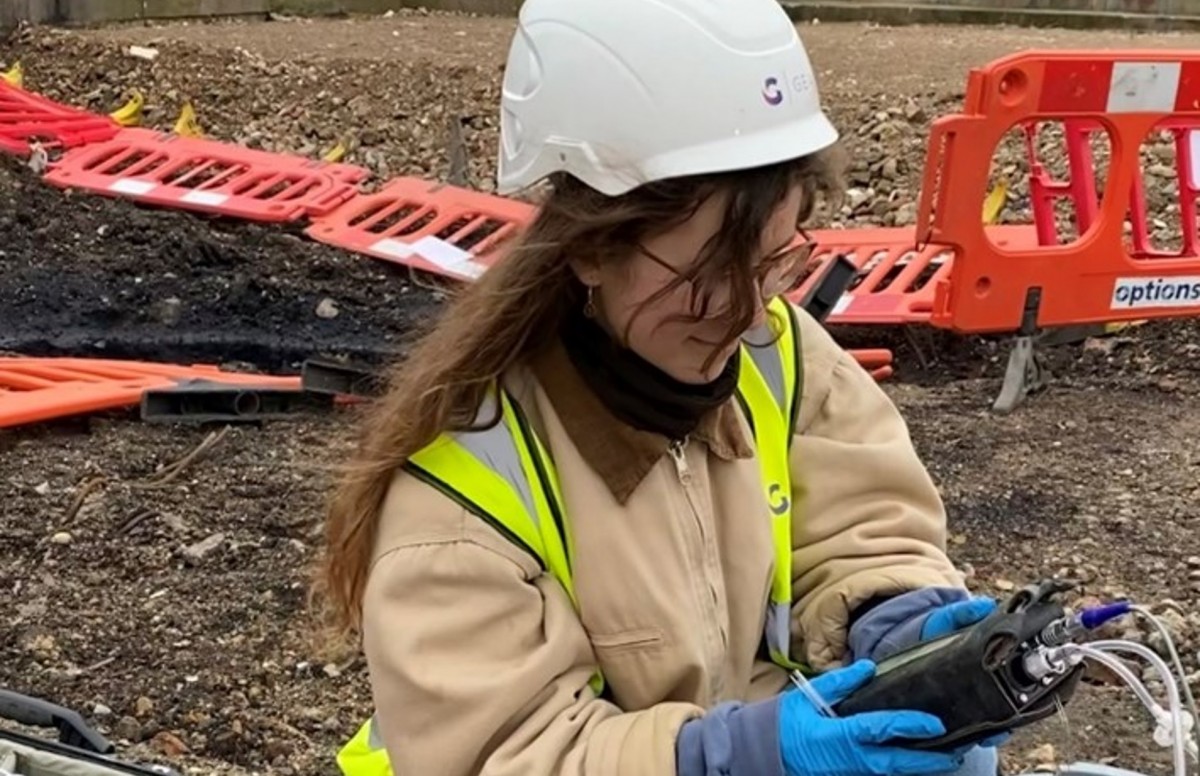Geotheta Fundamentals Explained
Geotheta Fundamentals Explained
Blog Article
Geotheta Can Be Fun For Everyone
Table of ContentsThe 3-Minute Rule for Geotheta10 Easy Facts About Geotheta Shown9 Simple Techniques For GeothetaUnknown Facts About GeothetaThe Buzz on Geotheta

They conduct site examinations, gather samples, execute laboratory tests, and examine information to evaluate the suitability of the ground for building jobs - Geo Tech Engineering. Based on their findings, geotechnical engineers provide recommendations for structure style, incline stability, retaining frameworks, and mitigation of geotechnical dangers. They collaborate with other professionals, such as designers, structural engineers, and building groups, to make sure that geotechnical considerations are integrated into the general project layout and execution
By examining the habits and properties of dirt and rock, they can identify possible geotechnical threats such as landslides, soil settlement, or slope instability. Their proficiency helps protect against failures or mishaps that might endanger lives and residential property. Below are some comprehensive tasks and obligations of a geotechnical designer: Website Examination: Geotechnical engineers conduct website investigations to collect information on subsurface problems.
They translate the information to understand the buildings and habits of the soil and rock, including their toughness, leaks in the structure, compaction features, and groundwater conditions. Geotechnical Evaluation and Style: Geotechnical designers assess the information collected throughout website examinations to examine the stability and suitability of the website for construction jobs. They execute geotechnical calculations and modeling to assess elements such as bearing ability, negotiation, slope security, lateral earth stress, and groundwater flow.
Some Of Geotheta
Foundation Style: Geotechnical designers play a critical function in developing foundations that can securely support the designated structure. They analyze the dirt problems and tons needs to identify the proper structure type, such as shallow foundations (e.g., grounds), deep foundations (e.g (https://my-store-fc66c1.creator-spring.com/)., stacks), or specialized methods like dirt renovation. They take into consideration variables such as settlement limits, bearing ability, and soil-structure communication to establish ideal structure designs
They examine construction plans, monitor website activities, and perform field assessments to validate that the layout suggestions are followed. If unanticipated geotechnical concerns occur, they analyze the situation and supply referrals for removal or adjustments to the design. Risk Evaluation and Mitigation: Geotechnical designers analyze geotechnical threats and risks connected with the job website, such as landslides, liquefaction, or soil disintegration.

Partnership and Interaction: Geotechnical engineers function closely with other specialists associated with a project, such as designers, structural designers, and building and construction teams. Reliable communication and cooperation are important to incorporate geotechnical considerations into the total job style and construction process. Geotechnical designers offer technological expertise, solution queries, and make certain that geotechnical demands are fulfilled.
The Facts About Geotheta Uncovered
Right here are some kinds of geotechnical engineers: Structure Engineer: Foundation engineers focus on creating and evaluating foundations for frameworks. They analyze the soil conditions, lots demands, and website features to identify the most proper structure kind and style, such as shallow structures, deep structures, or specialized techniques like heap structures.
They examine the elements affecting slope stability, such as soil buildings, groundwater problems, and slope geometry, and establish techniques to protect against slope failures and minimize risks. Quake Designer: Quake engineers focus on analyzing and creating frameworks to stand up to seismic forces. They evaluate the seismic risk of a website, evaluate dirt liquefaction possibility, and develop seismic layout requirements to make certain the safety and strength of frameworks during quakes.
They execute area screening, accumulate samples, and assess the gathered data to identify the soil properties, geologic developments, and groundwater conditions at a site. Geotechnical Instrumentation Engineer: Geotechnical instrumentation engineers concentrate on surveillance and gauging the actions of dirt, rock, and structures. They mount and preserve instrumentation systems that keep an eye on elements such as dirt settlement, groundwater levels, incline motions, and structural variations to evaluate performance and give early warnings of possible issues.
Examine This Report on Geotheta
They conduct examinations such as triaxial examinations, debt consolidation examinations, direct shear tests, and permeability examinations to gather information for geotechnical evaluation and design. Geosynthetics Designer: Geosynthetics engineers focus on the style and application of geosynthetic products, such as geotextiles, geogrids, and geomembranes. They use these products to boost soil stability, strengthen inclines, give drain remedies, and control erosion.
They often tend to be investigative individuals, which means they're intellectual, reflective, and curious. They are curious, methodical, logical, analytical, and sensible. Some of them are also social, suggesting they're kind, charitable, cooperative, individual, caring, helpful, compassionate, skillful, and pleasant. Does this seem like you? Take our complimentary job examination to discover out if geotechnical engineer is among your top occupation suits.
In the workplace atmosphere, geotechnical designers make use of specialized software devices to do computations, create layouts, and evaluate data. They prepare reports, review task specifications, connect with customers and staff member, and coordinate task activities. The office setup provides a helpful atmosphere for study, evaluation, and partnership with various other experts associated her explanation with the task.
Geotheta Fundamentals Explained
They frequently see project websites to perform site examinations, evaluate geotechnical conditions, and gather information for evaluation. These sees involve traveling to various locations, often in remote or challenging terrains. Geotechnical engineers might do dirt sampling, conduct examinations, and display construction activities to make sure that the geotechnical aspects of the project are being carried out appropriately.
Geotechnical engineers also function in specialized geotechnical research laboratories. Geotechnical laboratory designers work extensively in these atmospheres, handling testing devices, running instruments, and tape-recording information.
Report this page